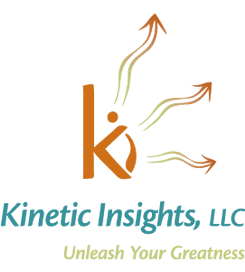“Great companies have great purposes.” –John Mackey, founder Whole Foods Market Inc.
In late 2010 I was on a flight seated next to a senior engineering leader with British Petroleum who was in charge of a few of the shore clean-up sites on the Gulf. Having worked for Exxon for a number of years myself – including at the time of the Exxon Valdez – we had much to talk about.
Near the end of our flight, he told me about how a local official kept him and his crew from containing a large slick headed for a beach full of wildlife, so that a national press crew arriving later that day had something “impactful” to film for the evening news. There was no question in this man’s mind that they could have contained that slick, yet he had to stand by, watching powerlessly, as the slick reached shore and had its devastating effect. As he told me this – I thought I noticed his eyes get a little misty.
He reminded me of so many men and women I have worked with at Exxon, BFGoodrich and Pfizer who wake up every day wanting to have a meaningful impact on others, their communities and their environment. In fact, in 30-plus years working for these companies, I never met one individual who fit the profile of the evil, greedy, exploiter that comes to mind for so many when someone says “big oil,” “big pharma” or industrial chemicals.
I often wondered, “How could bad things happen in organizations made up of so many bright, able and caring people?”
This question is one of the things that would eventually lead to me becoming involved with Conscious Capitalism.
Conscious Capitalism calls for a fully integrated business model that redefines the relative importance of stakeholders – shifting from the shareholder primacy model to one where shareholders, employees, communities and the environment have the same relative importance in how the organization defines its purpose – a purpose beyond profit.
In a conscious organization, productivity is essentially the by-product of a culture and work environment where everyone can bring their “whole selves” to work – all of their creativity, best problem solving skills and commitment arising out of feeling a sense of purpose. In a conscious organization employees are no longer working for the benefit of the anonymous shareholder – they are now working to create value for themselves, the communities in which they live, and the environment that surrounds them.
I taught tennis at a city park one summer when I was in high school. On the first day I asked my class – a group of eight who played doubles regularly – what they wanted to work on. They said “Our serve – we want our serves to be faster.” I asked them to play, so I could see how they were serving now. To a person, they all used what I call a “pooch” serve – tossing the ball in front of their face and pushing it over the net. I let them know I could help – I would teach them the overhead serve. “Oh no” they said, “we don’t want to learn a new serve – we just want to hit this one harder and faster.”
The kind of shift in leadership required to create and lead conscious organizations is not going to come from doing more of the same, better or more creatively. It’s not adding in-office massages, or bring your dog to work days or eliminating the position of manager. This evolution will require a fundamental shift in the way we look at the role of leaders in organizations and ultimately in the role of organizations in society.
If business is to become its most noble self, or as Chris Lazlo at Case Western Reserve University wrote, “an agent of world benefit,” a new form of leadership must emerge. In fact it is already asking to be born.
At Kinetic Insights, our PathFinders are skilled in helping leaders unleash the greatness in themselves and in their organizations. Call or email us for a quick discussion that just might put you and your team on the path to significant change.
Andrew Powell’s focus is customized team and organizational change consulting as well as executive coaching for growth-minded commercial organizations, government entities and non-profits.











Leave A Comment